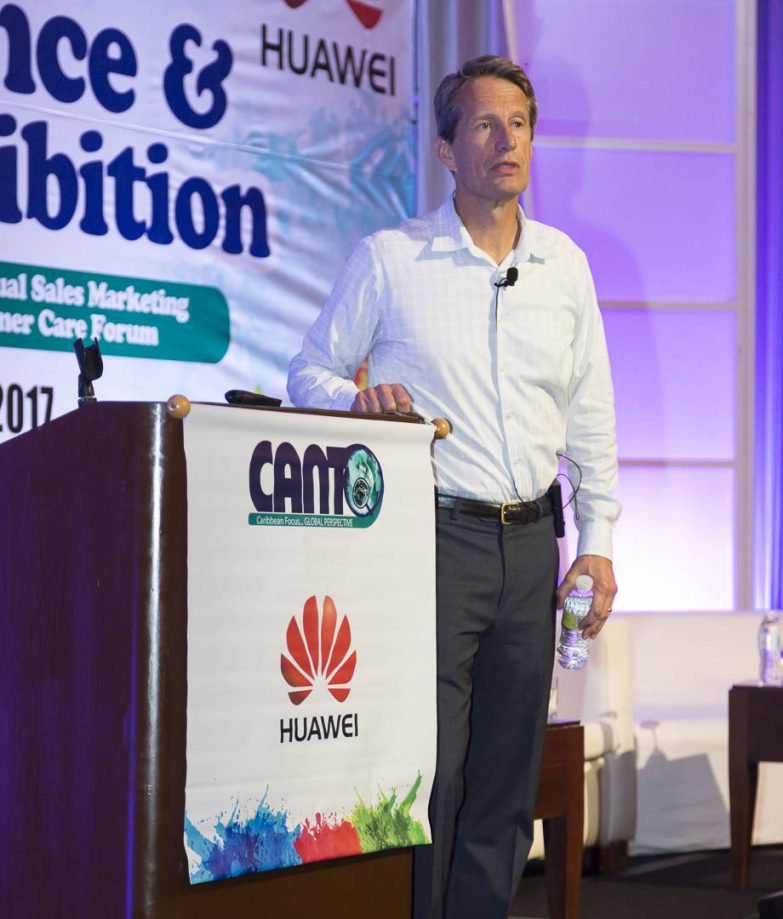CANTO Weekly Newsletter – BNamericas
Thursday, February 8, 2018
US Task Force on Cuba internet met with disdain in Havana – Cuba
Millicom returns to profitability in Q4 – Regional
Claro to invest US$1bn in Dominican operations – Dominican R.
ICT: The week in 10 stories – Regional
Altice to invest over US$600mn in Dominican Republic – Dominican R.
The information presented and opinions expressed herein are those of the author and do not necessarily represent the views of CANTO and/or its members
US Task Force on Cuba internet met with disdain in Havana – Cuba
Cuba has condemned an Internet Task Force formed by the US Department of State (DOS) to examine the connectivity challenges on the island as an attempt to meddle in the affairs of the island nation.
The Task Force was due to meet for the first time on Wednesday, February 7, according to a statement by the DOS. The US government did not give names of the members making up the task force nor the details of what would specifically be discussed.
However, according to a report by El País, Havana responded to Washington condemning any “attempt to manipulate the internet for political or subversive means.”
The thawing of relations with Cuba was started by former US President Barack Obama, who in 2016 became the first US head of state to visit the island in nearly a century.
The Obama administration’s policy was in favor of opening up Cuba to the world through communications, and the official visit led to a slew of international roaming agreements between Cuban state telco Etecsa and major US telecom carriers, plus commitments from prominent internet companies like Google, Airbnb and Netflix to activate services on the island nation.
Donald Trump’s administration, on the other hand, has gone back to an approach of applying pressure on Cuba, citing its human rights record and last month Trump signed an executive order to keep the Guantanamo prison camp open.
In 2015, Cuba had the lowest rate of mobile telephony penetration in Latin America at 29.7%, half that of Haiti (68.8%), according to the International Telecommunication Union (ITU).
However, due to new policies from the Cuban government to improve connectivity, starting with allowing normal citizens to own mobile phones for the first time in 2008 and access the internet in 2013, communications have been improving.
The government has said its goal is to have 50% of households connected to the internet and 60% mobile penetration by 2020.
The number of individuals using the internet climbed to 38.7% in 2016 from 27.9% in 2013, according to the ITU. However, that has been largely due to the internet kiosks and public Wi-Fi hotspots that Etecsa has introduced around the island, now numbering 635.
In September, Etecsa said it would expand residential internet beyond Havana to five new provinces and cover all of the island’s provinces by December.
Millicom returns to profitability in Q4 – Regional
Luxembourg-based telecoms company Millicom bounced back to profitability in Q4, buoyed by a recovery of its Latin American operations, where there is a strong focus on investments to migrate customers from voice to data networks.
The company posted net income of US$69mn in Q4 compared to a loss of US$129mn a year earlier. Revenue rose 2.1% y-o-y to US$1.55mn.
“Our mobile business is growing again, and it is encouraging to see Q4 growth of more than 3% in Paraguay and Bolivia, countries where the transition from voice to data is more advanced,” the company said in a statement.
LATIN AMERICA
Millicom saw revenues in Latin America grow 2.1% to US$1.4bn. Total mobile customers in the region were up 3.3% to 32mn, of which 15mn were B2C mobile data customers and 6.9mn were 4G customers. Mobile ARPU dipped 2.9% to US$7.8.
Its fixed line networks based on hybrid fiber coaxial cable saw an 11.8% growth in the region in Q4 to 9mn homes passed. The company expects to add 1mn new HFC passed for a total of 10mn homes.
Bolivia and Paraguay brought in the largest growth in revenues in the quarter, rising 7.2% and 14.9%, respectively. Bolivia also posted an 11.9% growth in mobile customers to 3.3mn and an 83.8% rise in total homes connected, while in Paraguay the company had a 5.7% dip in mobile customers but a 23% rise in homes connected.
In Paraguay the company has been focusing on higher value customers, including 140,000 4G smartphone users.
Mobile ARPU grew 10% y-o-y in Paraguay, the second highest after Bolivia.
Colombia saw revenues fall 3.3% despite a 4.3% rise in mobile customers, doubling the 4G number base to represent 26% of the total mobile base.
Millicom, which also has operations in Africa, has been focusing more on strengthening its Latin America business. A case in point was the sale of its Rwanda business in December 2017.
The company also sold towers in Paraguay, Colombia and El Salvador, and reduced its ownership stake in digital micro insurer BIMA.
It said that it expects 2018 revenue growth in Latin America of 2-4% and capital expenditures for the region of US$1bn.
The company expects to add 3mn 4G data customers to its B2B mobile unit in 2018 in Latin America for a total of 10mn by year-end.
Claro to invest US$1bn in Dominican operations – Dominican R.
Telecom operator Claro will invest over 56.9bn pesos (US$1.16bn) in the Dominican Republic through 2022 to expand and improve its wireless networks and fiber footprint.
The announcement comes immediately after competitor Altice unveiled a three-year investment plan of 33bn pesos.
A year ago Claro said it would invest 31bn pesos to modernize its Dominican infrastructure. According to Oscar Peña, president of Claro República Dominicana, the updated figure will help the telco strengthen its position by adding value in the segments where it participates.
Data from telecom regulator Indotel indicates that there were 10mn mobile lines in the Dominican Republic at the end of last year. Claro had 56% of the country’s mobile lines followed by Altice (34%) and Viva (6%).
ICT: The week in 10 stories – Regional
BRAZIL
Brazil’s ICT industry is projected to grow 2.2% year-over-year in 2018, according to forecasts by São Paulo-based consultancy IDC. Most of the growth is expected to come from the IT sector.
ARGENTINA
Telecom Argentina will invest US$5bn in infrastructure between 2018 and 2020 to meet the growing demand for connectivity in the country. Funds will be aimed at increasing base stations for telephony and mobile broadband by 20% and at developing next generation networks for rolling out convergent services.
PERU
Peru made two modifications to its telecommunications law, promoting investments in infrastructure to close the country’s digital gap.
NICARAGUA
Nicaragua registered over 170,000 LTE subscriptions last year, up 62% from a year prior, as internet and telecom association Canitel expects LTE subscriptions to hit the 245,000 mark by year-end.
BOLIVIA
Mobile phones generated 90% of internet connections in Bolivia at the end of last year, with mobile internet lines totaling 7.93mn. According to telecom regulator ATT, Bolivia had a total of 8.81mn internet connections, which surpassed the forecasted amount of 7.13mn.
MEXICO
Mexico’s telecoms and IT chamber Canieti is pushing for the creation of an ICT ministry.
PANAMA
The communications and transport committee of Panama’s legislative assembly has approved in a first debate proposed legislation to facilitate consolidation in the telecom industry. The government-backed bill would replace a 1996 law and opens the possibility of consolidation of mobile companies.
COSTA RICA
Costa Rica’s state telco ICE is eyeing regional expansion with Nicaragua, Honduras, Guatemala and Panama in its sights, according to local daily La República.
CUBA
Cuba is preparing to take the next step in its transition to digital terrestrial television, which will involve a partial analog blackout. According to Grisel Reyes, president of IT cluster Geic, Cuba is working on fostering the conditions needed to begin the partial blackout in the second quarter of this year.
COLOMBIA
Colombia’s software industry generated revenues of 13.5tn pesos (US$4.74bn) in 2016. The goal is to increase the figure to 17.7tn pesos, said ICT minister David Luna.
Altice to invest over US$600mn in Dominican Republic – Dominican R.
Netherlands-based telco Altice announced investments of 33bn pesos (US$677mn) through 2022 for its Dominican Republic operations.
The telco will invest 6.6bn pesos in infrastructure and network upgrades, which include adding 1,400 LTE 4G base stations to its fleet. The operator will also expand its triple-play service offer as a way to bridge the country’s digital gap.
Martin Ross (pictured), CEO of Altice Dominicana, said the investments made in the next four years are aimed at positioning the Dominican Republic as a leading country in the Caribbean digital economy.
The investment plan refutes rumors that the group was considering selling its Dominican operation to reduce its debt.
Back in November Altice completed the merger of Dominican telcos Orange and Tricom



